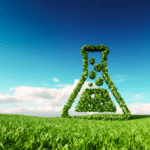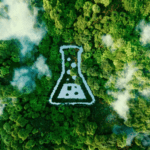The negative impact of persistent plastic materials on the environment is now well documented. In 2020 the National Geographic magazine stated that “Microplastics have moved into virtually every crevice on Earth”.
As most plastics don’t biodegrade or degrade very slowly, they tend to disintegrate into microplastics which breakdown over time into smaller and smaller particles. These particles contaminate land, sea, rivers, and the air, entering the food chain of fish and animals and ultimately being consumed by us.
Figures published by the United Nations Environmental Programme (UNEP) suggest that only 10% of plastic products produced are recycled and therefore environmental fate is either incineration or landfill. Most plastic waste ends up in landfill where it can take as long as 500 years to degrade.
UNEP estimates that globally we purchase one million plastic bottles every minute, and annually we use five trillion plastic bags. In most cases these will be used once and thrown away meaning we produce around 400 million tonnes of plastic waste per year only 10% of which is recycled.
Governments are now acting to break our addiction to single use plastics and encourage manufacturers and retailers to consider end-of-life fate and use more recycled content. In 2021 the European Union introduced a levy on non-recycled packaging waste of €800 per tonne. In the UK from the 1st of April 2022 a new tax will be applied to any plastic material that does not contain 30% recycled plastic. The tax which is equivalent to £200 per tonne will apply to any manufacturer or retailer importing more than 10 tonnes of plastic packaging per year.
These types of levies and taxes are only going to increase. It is now time for manufacturers and retailers to use recycled plastics and consider the end-of-life fate of their products. The production of plastic cannot be sustained unless it can be recycled or made to be readily biodegradable.




